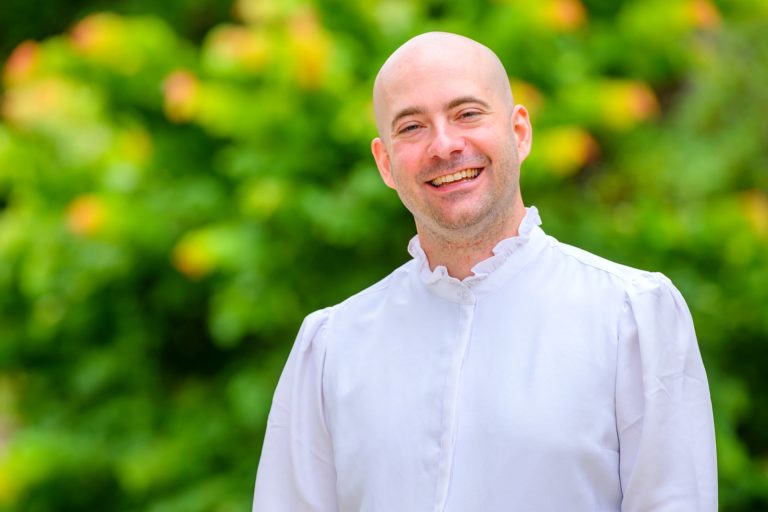
Michigan State University’s Department of Theatre is proud to present its first-ever immersive theatre performance where the show is not limited to the stage, but rather moves throughout the venue, encouraging audience members to get up out of their seats for what is sure to be a unique theatrical experience.
This production also marks the premiere of Thus With A Kiss I Die, which is set in 1958 at a small southern university where a progressive director from New York City has controversially cast a white student as Juliet and a black student as Romeo in the university’s production of Romeo and Juliet.
Conceived and directed by Professor of Theatre Rob Roznowski, Thus With A Kiss I Die examines intolerance between a multitude of social groups while addressing numerous social issues of the past and exploring their similarities and differences today.

“The play is really trying to show that ‘wow we’ve come really far and we haven’t.’ That’s really the message of the show – What is our culpability and responsibility in moving forward towards harmony and social equality,” said Roznowski, who created storylines for each character that not only reflect issues from the 1950s South but also today’s modern societal issues.
Purposely scheduled during Black History Month, the play’s subject matter is meant to encourage the audience to think critically about these issues.
“These things are still going on and it’s so important for people to come and experience things that get them thinking,” said junior Raied Jawhari, BFA Acting, who plays the role of the progressive director from New York.
Citizen Scholar and freshman Theatre major, Jamie Lien plays the role of Maggie Anderson, the character in the show that was casted as Juliet. The hardest part about the show for Lien is immersing herself into her character because of how hateful she is, “[Maggie] is horrible, she’s racist, and I have to fully immerse myself into her and live in her for two hours.”
“The directors and assistant directors have been really helpful in creating a safe environment and helping us learn how to merge into our characters so we’re able to safely exit our characters at the end of each night. Each night we have a ritual to acknowledge that even though we’re so hateful in the performance space, we’re all still friends and in this together,” said Lien.
Rather than having a set script, the actors will receive prompts for long-form improve with each character having a minute-by-minute flowchart of what they’re doing, how they’re feeling, and where they are. Then, diverging from traditional performance styles, audience members will be invited to intimately witness scenes from a variety of locations throughout the MSU Auditorium building.
“It’s really amazing having people come up and watch you from just a few inches away, it makes it very intimate and so real,” Jawhari said.
Audience members can track one specific storyline, explore several rooms, follow a single character, or stay in one space and let the action come to them. Thus, each person’s experience will be unique.

“You can make your own show,” said senior Evan Phillips, BFA Acting, who plays the character of Joseph Lipman, the black student who plays the role of Romeo. “You can see the show multiple times and it will always be completely different depending on the characters you follow.”
This innovative form of theatre is for those looking to get out of their comfort zone and experience something new.
“It’s not traditional theatre, and it’s not for everyone,” Roznowski said. “This show is for people who are a little bit daring when it comes to the subject matter they want to explore and the kind of experience they want.”
Each performance will begin in the Fairchild Theatre of the MSU Auditorium. Show times are as follows:
- Friday, February 16, at 8 p.m.
- Saturday, February 17, at 8 p.m.
- Sunday, February 18, at 2 p.m.
- Tuesday, February 20, at 7:30 p.m.
- Wednesday, February 21, at 7:30 p.m.
- Thursday, February 22, at 7:30 p.m.
- Friday, February 23, at 8 p.m.
- Saturday, February 24, at 2 p.m.
- Saturday, February 24, at 8 p.m.
- Sunday, February 25, at 2 p.m.
A pre-show discussion with Roznowski will take place on Sunday, February 18, at 1:15 p.m., and a post-show discussion will be held on Thursday, February 22, directly following the show.
Tickets can be purchased through the Wharton Center for Performing Arts website. This production was made possible by Lilly Fellows program funding and in collaboration with Third Rail Projects, an immersive theatre company in Brooklyn, New York.
For more information on the performance, visit the Department of Theatre website.


